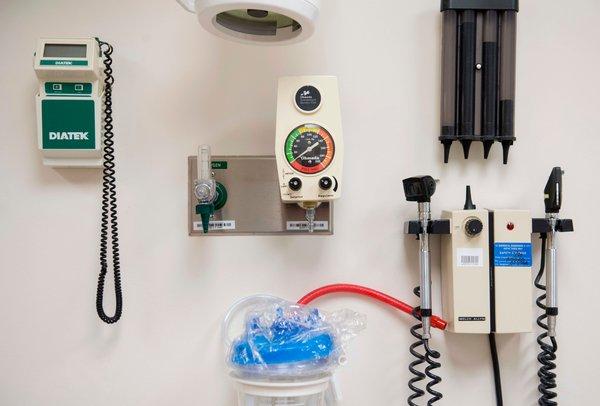
People who spend a lot of time in the health care system have some advice for the rest of us.CreditSaul Loeb/Agence France-Presse — Getty Images
If the health care system seems confusing to you, you are not alone. In a large recent survey of the most seriously ill people in America, we learned that they, too, find it difficult to navigate. But they have developed a few strategies for getting through. Here are some tips and pitfalls about how to be sick from a group with lived experience.
Keep records and bring them
Among the seriously ill people we surveyed with the Commonwealth Fund and the Harvard T.H. Chan School of Public Health — those who had been hospitalized twice and seen three or more doctors in recent years — bringing documents with them to doctor’s appointments was common. Seventy-eight percent of them carried a list of medications. Seventy percent brought a list of questions.
Many people in our survey had seen more than five doctors in the last year. So bringing records with them made sense, to ensure that each physician knew what others were doing. In an ideal world, every doctor would have a patient’s complete medical records. But, in many cases, medical records remain siloed and hard to share digitally.
Some patients in our survey said working on questions in advance was empowering. Doctor’s visits are often over before you know it, and it can be hard to follow up afterward.
“The doctor is just going to come in poke you and go, and you can’t let them go until you feel comfortable with everything,” said Tristan Berger, 47, of Tucson, who has had numerous orthopedic operations for complications from spina bifida.
Find an advocate
More than half the people in our survey said they brought a friend or family member with them to every appointment. When you’re sick, you may not remember everything that is said to you. A second set of eyes and ears can be helpful.
People who are very ill, said John Benson, a senior research scientist at Harvard who helped devise the survey, “need somebody who will be able to function who is not ill.”
About a third of people in our survey said they had a friend or family member in the health industry whom they could go to for advice. Those people were often used as sounding boards for finding the best doctors, or troubleshooting problems with treatments. Of course, not everyone has the good fortune to have a medical professional in the family.
Another group of patients — just under half — had a professional attached to their doctor’s office or insurance company in charge of coordinating their care. According to the results, such people had an easier time navigating the system than those who did not. They were less likely to report having duplicate tests or procedures and more likely to understand the costs associated with their care. Ninety-five percent of people with such a coordinator found that person helpful.
Dana Lewis, 59, of Edmond, Okla., who has helped to care for her ill daughters and husband, says that outside health advocates have made a big difference when she has been faced with large bills or confusing messages from medical providers. “If it weren’t for the health advocates, I couldn’t do it,” she said.
Ask questions, and listen
We asked people in our survey whether they’d developed any special tricks or workarounds in navigating the system. The most common answers fell into two categories. One group said it was important to follow doctors’ advice. The other said it was important to do outside research, ask questions and get second opinions.
That split reflects just how hard it can be to navigate the health care system when you’re sick. The people in our survey tended to have very serious health problems, sometimes several at once. They counted on the system to help them, but also recognized that it often let them down.

We might think of the seriously ill as the most experienced users of our health care system. They are. But they are also sick. Despite the above advice, patients in the survey described the health care system as perplexing and overwhelming. Sixty-two percent said they’d been rendered “anxious, confused or helpless” by the experience.
When asked about specific types of misunderstanding, 18 percent said advice by different medical professionals conflicted, and 15 percent said they couldn’t even understand what was being done to them. Twenty-two percent said that hospital staffers weren’t responsive to their needs.
Perhaps that’s why seven of the survey’s respondents also offered the following advice: Pray.
The survey, a joint project of The New York Times, the Commonwealth Fund and The Harvard T.H. Chan School of Public Health, included landline and cellphone telephone interviews with 1,495 adults who either had a serious illness or were caring for someone who did. Interviews were conducted in English and Spanish. The results are nationally representative. The margin of error is plus or minus 3.2 percentage points for most questions.

